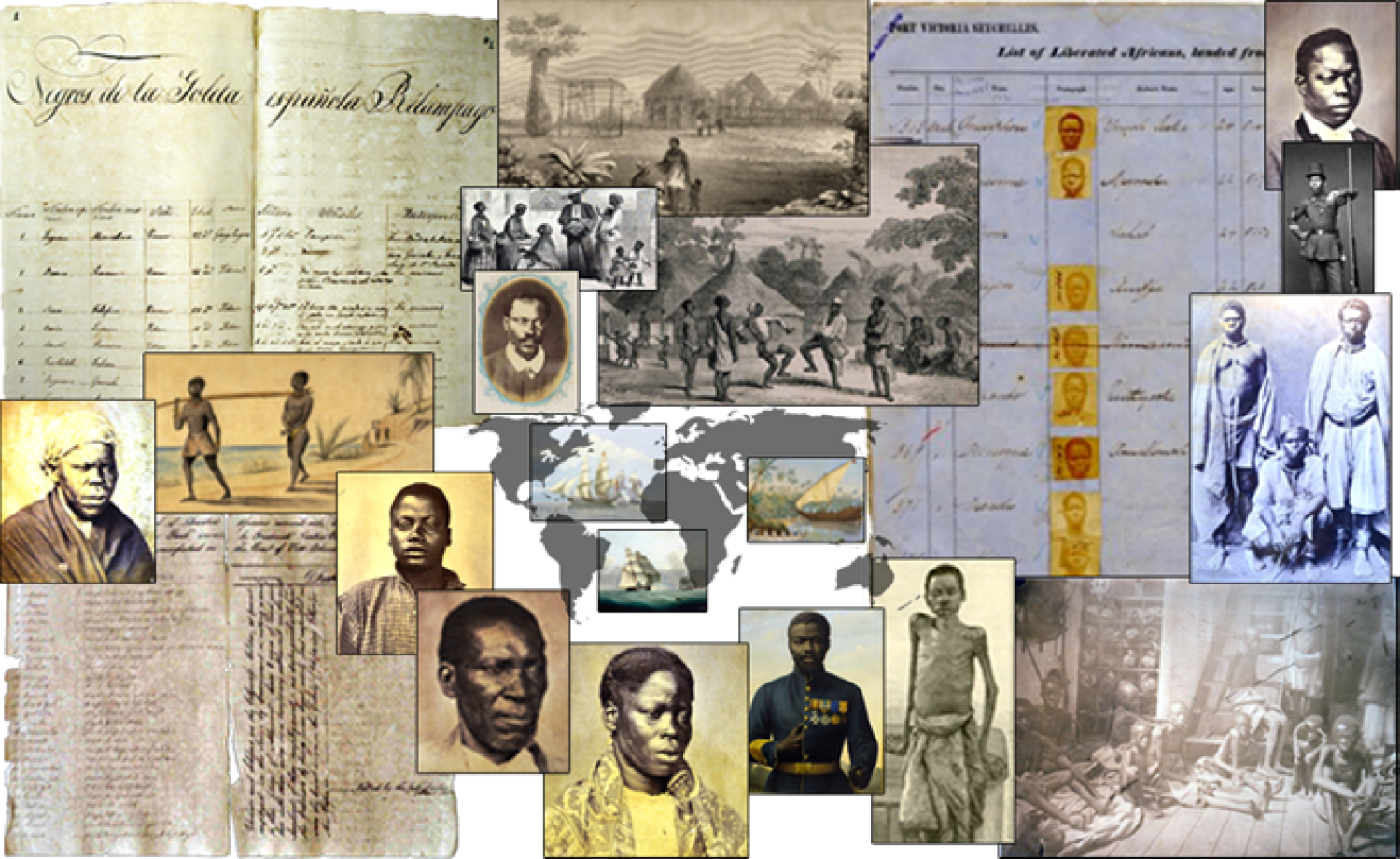Historian, Henry Lovejoy hones website focused on African slaves who were ‘liberated’ but not freed

CU Boulder’s Henry Lovejoy updates LiberatedAfricans.org, which highlights a largely forgotten period of time in the history of African diaspora
By Bradley Worrell , Colorado Arts and Sciences Magazine
Collage of "Liberated Africans" - www.liberatedafricans.org
The term “Liberated Africans” coincides with a now-little-remembered part of history following the passage of the Slave Trade Act of 1807 by the United Kingdom’s Parliament, which prohibited the slave trade within the British Empire (although it did not abolish the practice of slavery until 1834).
Meanwhile, around the same time, the United States Portugal, Spain, the Netherlands, among others, passed their own anti-trafficking laws. In the years that followed, the British Royal Navy—which then controlled the world’s seas—and other participating navies operated a squadron of ships in the Atlantic and Indian oceans to interdict the slave trade.
Before 1900, those navies seized nearly 3,000 slave ships. Various British and international courts convened to determine the fates of the “Liberated Africans.”
However, in a cruel twist of fate, most of those “liberated” people weren’t actually freed—but were instead condemned as property, declared free under anti-slave trade legislation, and then subjected to indentures, lasting several years.
“So, scholars argue this is another type of slavery, because it resulted in bonded labor,” Lovejoy says, noting, “They were made to work on sugar plantations just like enslaved Africans. They get ignored from the history of indentured labor from Asia because they are sort of regrouped with chattel slavery.
“So, there’s a whole new social status that forms under the term ‘Liberated Africans,’ which is a misnomer. This is called a humanitarian effort, but the contradiction is, it’s a crime against humanity.” (Read More)

